
Browse an alphabetical list of survivors’ oral histories. These interviews describe firsthand accounts and personal experiences during the Holocaust and World War II.
<< Previous | Displaying results 321-330 of 572 for "Oral History" | Next >>
The Germans invaded Poland in September 1939. Leo and his family were confined to a ghetto in Lodz. Leo was forced to work as a tailor in a uniform factory. The Lodz ghetto was liquidated in 1944, and Leo was deported to Auschwitz. He was then sent to the Gross-Rosen camp system for forced labor. As the Soviet army advanced, the prisoners were transferred to the Ebensee camp in Austria. The Ebensee camp was liberated in 1945.
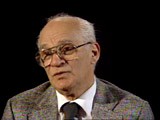
Leon Bass was born in Philadelphia, PA in 1925. He joined the US Army in 1943 and served as a member of the all-Black 183rd Engineer Combat Battalion attached to General Patton's Third Army. Leon's unit was involved in the Battle of the Bulge as well as the liberation of Buchenwald. After the war, Leon went on to receive his doctorate, teach, and speak about the Holocaust and racism. In this interview, Leon describes the his frustration with the discord between the United State's condemnation of Nazi…
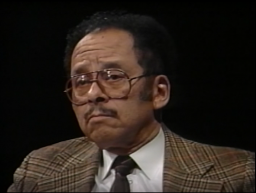
Leon Bass was born in Philadelphia, PA in 1925. He joined the US Army in 1943 and served as a member of the all-Black 183rd Engineer Combat Battalion attached to General Patton's Third Army. Leon's unit was involved in the Battle of the Bulge as well as the liberation of Buchenwald. After the war, Leon went on to receive his doctorate, teach, and speak about the Holocaust and racism. In this interview, Leon describes the racism and segregation he faced in the United States during the 1940s and how it…
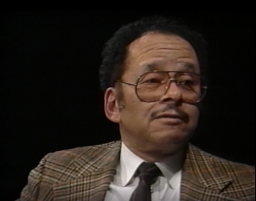
Leon Bass was born in Philadelphia, PA in 1925. He joined the US Army in 1943 and served as a member of the all-Black 183rd Engineer Combat Battalion attached to General Patton's Third Army. Leon's unit was involved in the Battle of the Bulge as well as the liberation of Buchenwald. After the war, Leon went on to receive his doctorate, teach, and speak about the Holocaust and racism. In this interview, Leon describes what he knew about Nazi concentration camps and the Holocaust during and after…
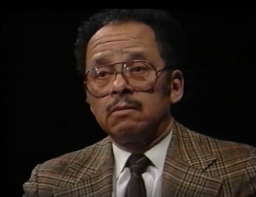
Leon Bass was born in Philadelphia, PA in 1925. He joined the US Army in 1943 and served as a member of the all-Black 183rd Engineer Combat Battalion attached to General Patton's Third Army. Leon's unit was involved in the Battle of the Bulge as well as the liberation of Buchenwald. After the war, Leon went on to receive his doctorate, teach, and speak about the Holocaust and racism. In this interview, Leon discusses his unit's movements during the Battle of the Bulge. He describes their path from…
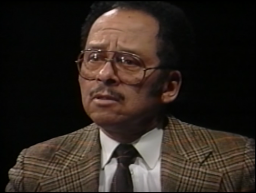
Leon Bass was born in Philadelphia, PA in 1925. He joined the US Army in 1943 and served as a member of the all-Black 183rd Engineer Combat Battalion attached to General Patton's Third Army. Leon's unit was involved in the Battle of the Bulge as well as the liberation of Buchenwald. After the war, Leon went on to receive his doctorate, teach, and speak about the Holocaust and racism. In this interview, Leon describes his first experiences with the realities of war and death. He reflects upon his…
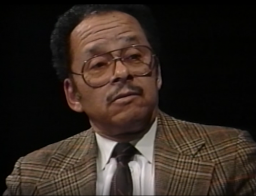
Leopold was a teacher in Krakow, Poland, when World War II began in 1939. While serving in the Polish army, he was captured by Germans. Leopold escaped from a prisoner-of-war transport. Soon after, he met the German industrialist Oskar Schindler. The two became friends. Leopold was forced to live in the Krakow ghetto. He later worked in Schindler's factory in Bruennlitz. He and the other Jews who worked there were treated relatively well and protected from the Nazis. After the war, Leopold moved to the…
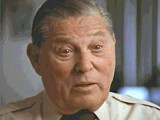
Leopold was a teacher in Krakow, Poland, when World War II began in 1939. While serving in the Polish army, he was captured by Germans. Leopold escaped from a prisoner-of-war transport. Soon after, he met the German industrialist Oskar Schindler. The two became friends. Leopold was forced to live in the Krakow ghetto. He later worked in Schindler's factory in Bruennlitz. He and the other Jews who worked there were treated relatively well and protected from the Nazis. After the war, Leopold moved to the…
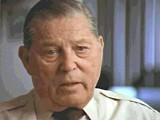
Leopold was a teacher in Krakow, Poland, when World War II began in 1939. While serving in the Polish army, he was captured by Germans. Leopold escaped from a prisoner-of-war transport. Soon after, he met the German industrialist Oskar Schindler. The two became friends. Leopold was forced to live in the Krakow ghetto. He later worked in Schindler's factory in Bruennlitz. He and the other Jews who worked there were treated relatively well and protected from the Nazis. After the war, Leopold moved to the…
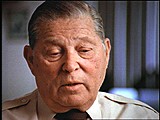
Germany invaded Belgium in May 1940. After the Germans seized her mother, sister, and brother, Lilly went into hiding. With the help of friends and family, Lilly hid her Jewish identity for two years. But, in 1944, Lilly was denounced by some Belgians and deported to Auschwitz-Birkenau via the Mechelen camp. After a death march from Auschwitz, Lilly was liberated at Bergen-Belsen by British forces.
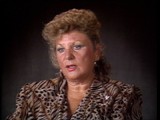
We would like to thank Crown Family Philanthropies, Abe and Ida Cooper Foundation, the Claims Conference, EVZ, and BMF for supporting the ongoing work to create content and resources for the Holocaust Encyclopedia. View the list of donor acknowledgement.